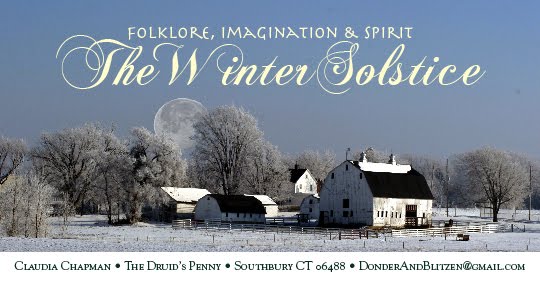My father-in-law married a second time. Joe was already out of the house, and we in fact were together, even though I was just a few months out of my teens. At the time it seemed like we were mature and worldly—which is funny, really, because basically we didn't know anything.
My father-in-law and his sophisticated Dutch second wife moved to Connecticut and settled in to the kind of country life that people from Manhattan think is country life, but really has very little to do with anything, except perhaps old movies and books.
Else had come from Holland in her twenties. When I met her she had just left a job at the Museum of Modern Art to marry and move to Connecticut. Being Dutch, naturally her parents were Dutch as well. Her father spoke presentable English, but her mother could barely speak a word outside of her native language. Mrs. Martinus (yes, Martinus is a Dutch name which honors Saint Martin) nonetheless managed to communicate. She could sew and make things and was very clever in this way. SInce I liked to sew and make things as well, we connected. The fact that my grandfather was also Dutch didn't hurt. Seriously, I remember liking Mrs. Martinus very much, even though we could barely communicate.
One day in early December, when the Martinuses were here for a long visit, Else took us both to a demonstration on handmade Victorian ornaments at the Wilton Garden Club. I was in seventh heaven—this was the kind of thing I had dreamed about people doing when I was growing up in Brooklyn. Something like this was the sort of thing I longed for, but had no idea where to go about looking for. The demonstrator gave out patterns for stuffed cats and birds to make for the tree. I couldn't wait to get home and try them. Mrs. Martinus was also enjoying the demonstration, which she managed to convey to me through little touches of the hand and smiles. She always reminded me of a sweet, purring tabby cat.
There was a luncheon after and we sat together. Mustering up her best English she was determined not only to make conversation, but to make contact with me. Very formally she spoke. This was a woman whose husband ate both sandwiches and even potato chips with a knife and fork, carefully cutting the sandwich in to even pieces. The Dutch then were a very formal people. They weren't too far away from sweeping decorative patterns in the sawdust they put down on their floors. Neither were they very far away from brutal Nazi occupation and being so hungry that they were reduced to eating tulip bulbs. This is, perhaps what made them so practical—think Amsterdam, if you know what I mean. Very formally, I'll say it again, she spoke. I could see her arrange her face and her posture as she balanced a tea cup in one hand. "Do you like fish?" she addressed her question to me. "Yes. I like fish" I responded. "I as well like fish" she informed me. We sat for a moment, very proud of our exchange. Then her face changed. The formality was gone and she addressed me once again. She carefully pronounced every word in this sentence, the only full sentence I ever heard her say in English. "When Else went to America—it was hard." With this one sentence, she somehow managed to convey to me her whole story. Her daughter leaving Holland, moving thousands of miles away, to a new land, a new country. The loss of it. Her sadness. In three carefully pronounced words, she managed to convey to me the most intimate story of her life. "It was hard." I still remember it as one of the most profound conversations of my life.
That Christmas Mrs. Martinus gave me a lovely little gift—two Kunstlerschutz animals. "Esel" and "Kuh" she said. Donkey and Cow, the animals who carried Mary and who were there when she gave birth. I don't remember any other gifts from that time, but I still have Esel and Kuh and they are displayed, without fail, even if I don't put out a creche.
On the night Else died Joe's father told me the story of why she had come to America. Apparently the reason she left Holland, to seek a new life and adventure in this country—in New York City, among the artists and museums. He told the story as if the life she might have led in Holland was a tragedy, narrowly averted. He expected me to understand. When Else was twenty her mother said "Soon you will be married too! I am so looking forward to it. We can meet every Friday and go to the market to shop for dinner together." I could see Mrs. Martinus saying this, happy at the thought of shopping with her daughter, exchanging recipes, teaching her to cook and make a home perhaps. After the abject horror of living through World War II, she was looking forward to the simple joy of having her family intact and shopping for dinner in a peaceful market with her married daughter. According to my father-in-law, the thought of such a life was enough to cause Else to flee both her mother and Holland.
It was hard.
Wednesday, December 8, 2010
Subscribe to:
Post Comments (Atom)

No comments:
Post a Comment